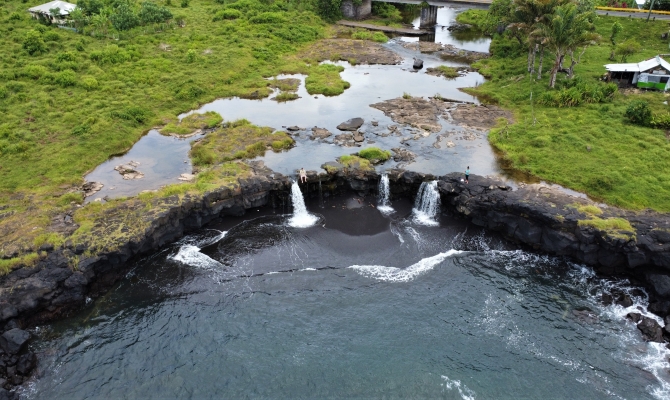
The Pacific region is extremely vulnerable to environmental and societal challenges such as climate change, natural disasters, and food security concerns. Its geographic location isolates it from the rest of the world, and thus compounds and makes it difficult to address these challenges.
While these challenges pose a significant threat to the wellbeing of our Pacific people, our natural environment holds the key to many of the solutions needed to ensure the resilience of our communities in the face of these challenges.
Ensuring that Pacific people and ecosystems benefit from Nature-based Solutions (NbS) to address environmental and societal challenges is at the centre of the Promoting Pacific Island Nature-based Solutions (PPIN) project, funded by the Government of Aotearoa New Zealand’s Ministry of Foreign Affairs and Trade.
Nature-based solutions (NbS) are described as actions to protect, sustainably manage, and restore natural and modified ecosystems that address societal challenges while simultaneously benefitting people and nature.
The project seeks to support the development of policy and legislation for NbS and embed NbS into regional and national policy and regulatory frameworks for key sectors in Fiji, Tonga, and Vanuatu. It is jointly implemented by the International Union for the Conservation of Nature (IUCN), The Pacific Community, Global Green Growth Institute and the Secretariat of the Pacific Regional Environment Programme (SPREP).
Through the PPIN project, NbS will be integrated into existing regional platforms such as the Pacific Resilience Partnership and the Pacific Islands Roundtable for Nature Conservation through technical working groups that will act in an advisory role to members. It will also strengthen regional and national awareness and capacity on NbS through targeted capacity building programmes for those who will be designing and implementing NbS.
PPIN Project Coordinator for SPREP, Ms. Utulei Lui, explains that SPREP, with its experience in NbS in the Pacific through the implementation of various projects such as the Kiwa Initiative and the Pacific Ecosystem-based Adaptation to Climate Change Plus (PEBACC+) project among others, is tasked with ensuring that by 2026, NbS is increasingly integrated into regional frameworks and national laws and policies, and that NbS is increasingly applied consistently across the region.
“Nature-based solutions are crucial to building the resilience of our Pacific communities and ecosystems, and ought to be promoted and used more widely within the region as a viable option to tackling environmental and social challenges,” Ms. Lui says.
“The many benefits and services provided by ecosystems can help our communities respond to the impacts of climate change, natural disasters, and water and food security. Through the PPIN project, we want to promote the increased integration and application of NbS into policies and legislation within the three target countries and beyond to ensure that our people can benefit from a protected and healthy environment that, in turn, protects us and future generations.
SPREP will be working closely with the PPIN Project Management Unit at the IUCN Oceania Regional Office in Suva, Fiji, and implementing partners to deliver on its outputs which will be closely integrated with and aligned with other NbS projects and initiatives across the region.
Three national co-design workshops are now planned in Fiji, Vanuatu and Tonga to kick start activities under the SPREP component in close collaboration with the Kiwa Initiative, and the PEBACC+ as well as the PPIN implementing partners.
For more information, please contact Ms. Utulei Lui at utuleil@sprep.org.